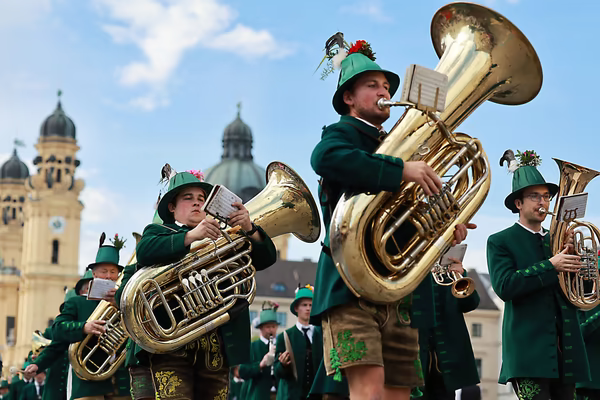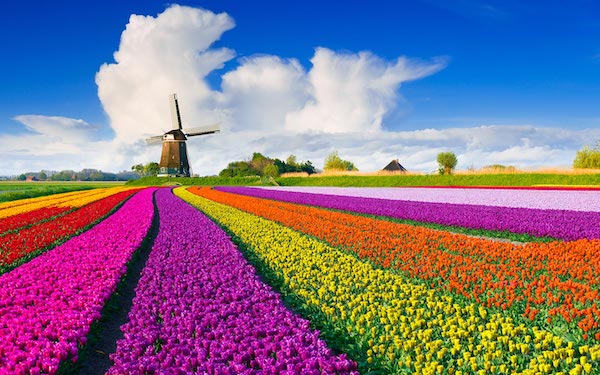


(quote)
From September 16 to October 3, the largest folk festival in the world takes place on the Theresienwiese. The festival site covers an area of 34.5 hectares. 898 companies have applied for Oktoberfest 2023. 474 businesses were approved this year, including 140 from the catering trade, 138 fairground businesses, 196 market traders and several service businesses. There will be 39 businesses at the Oidn Wiesn, 14 of which are gastronomic, 23 showmen’s shops and two market traders.
The traditional costume and hunters’ parade – Around 9,000 participants join the festive throng in Munich and parade festively through the city in 60 groups. Not only costume wearers take part in the traditional costume and hunters’ parade: costume clubs, hunters and mountain troops, marching bands and musicians from around the world can all sign up for the parade.
What is Oktoberfest—and why is it actually in September?
Every year, millions of revelers descend on a tent-filled meadow in Munich to celebrate the love of long-ago Bavarian royals at a celebration known as Oktoberfest.
Just kidding: These days people flock to Munich’s Oktoberfest with the hope of consuming liters upon liters of beer, indulging in German delicacies from bratwurst sausages to giant pretzels, and showing off their finest dirndls, traditional bodices for women, and lederhosen, traditional breeches for men.
The annual event held in Germany is the largest folk festival in the world—and also the largest beer festival, with revelers consuming approximately six million liters of ale each year. Inside its tents, you can fill your stein with lager to your heart’s content, dance to German folk music, and even go on carnival rides.
The original Oktoberfest was, in fact, held in October—on October 17, 1810, to be exact, in honor of the nuptials a few days earlier of Bavarian crown prince Ludwig and Princess Therese of Saxony-Hildburghausen. Legend has it that a member of the national guard came up with the idea of a festival for the common people, but scholars have cast doubt on those claims.
What we do know is that Bavaria at the time was a brand new kingdom: After years as an electorate of the Holy Roman Empire, the German state had recently been elevated as a result of King Maximilian I’s alliance with Napoleon. In addition to celebrating his son’s marriage, the festival held in its capital city was thus also an opportunity to foster and showcase a newfound sense of national pride.
The original Oktoberfest was a week of games that centered on a horse race, a particularly beloved tradition in Munich back then. Although most of the trappings of the modern Oktoberfest were not yet part of the event—beer concessions began in 1815—it was considered a rousing success. The meadow where it was held (and is still held today) has since been named “Theresienwiese” in honor of the bride.
…in the decades after that the modern Oktoberfest began to take shape with the addition of merry-go-rounds, ferris wheels, and chicken roasteries. While the official Oktoberfest is still held on the same field in Munich, there are now Oktoberfest events held throughout the country as a celebration of German heritage.
And how about the beer? It quickly became a quintessential part of the festivities. In 1835, historian Jeffrey Gaab writes that revelers consumed 250,000 liters of beer, and in 1895 breweries began to build temporary beer halls to accommodate visitors.
So why is Oktoberfest celebrated in September today? The answer is simple: weather. As early as 1828, festivalgoers had begun to complain about Bavaria’s rainy October weather, writes Moses Wolff in his Oktoberfest guide Meet Me in Munich. They pushed to move the celebration to a more temperate time of year—mostly unsuccessfully, as the city didn’t want to disrupt harvest season. By the 1890s, however, city officials began to heed these demands by occasionally moving the date—and by 1905 it appears that the festival was officially set for the end of September. Today, it almost always ends the first Sunday of October.
This Year’s Festival Is The Longest
Oktoberfest always starts on a Saturday in mid-September and runs to the first Sunday in October, a period of 16 days. But if that first Sunday falls on October 1 or October 2, the festival is extended until October 3, which is German Unity Day. Since the first Sunday in 2023 is October 1, this year’s Oktoberfest will run 18 days, the longest it can last.
(unquote)
Image courtesy Johannes Simon / Getty and oktoberfest.de






